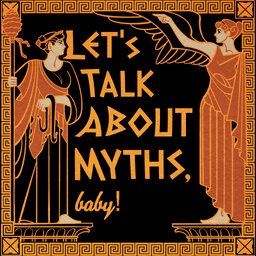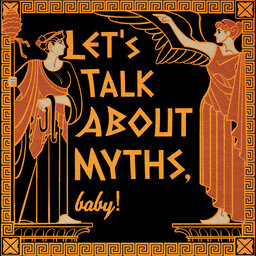Conversations: A Journey Aboard the Argo, the Many Myths of the Argonautika w/ Helen Lovatt
Liv speaks with Helen Lovatt, professor of Classics and author of a book all about the Argonauts! They talk about, well, the Argonauts and all the many varied versions of their story. Follow Helen on Twitter or check out her book, In Search of the Argonauts. Help keep LTAMB going by subscribing to Liv's Patreon for bonus content!
CW/TW: far too many Greek myths involve assault. Given it's fiction, and typically involves gods and/or monsters, I'm not as deferential as I would be were I referencing the real thing.
Attributions and licensing information for music used in the podcast can be found here: mythsbaby.com/sources-attributions.
 Let's Talk About Myths, Baby! Greek & Roman Mythology Retold
Let's Talk About Myths, Baby! Greek & Roman Mythology Retold


